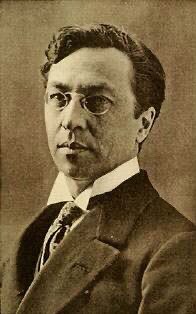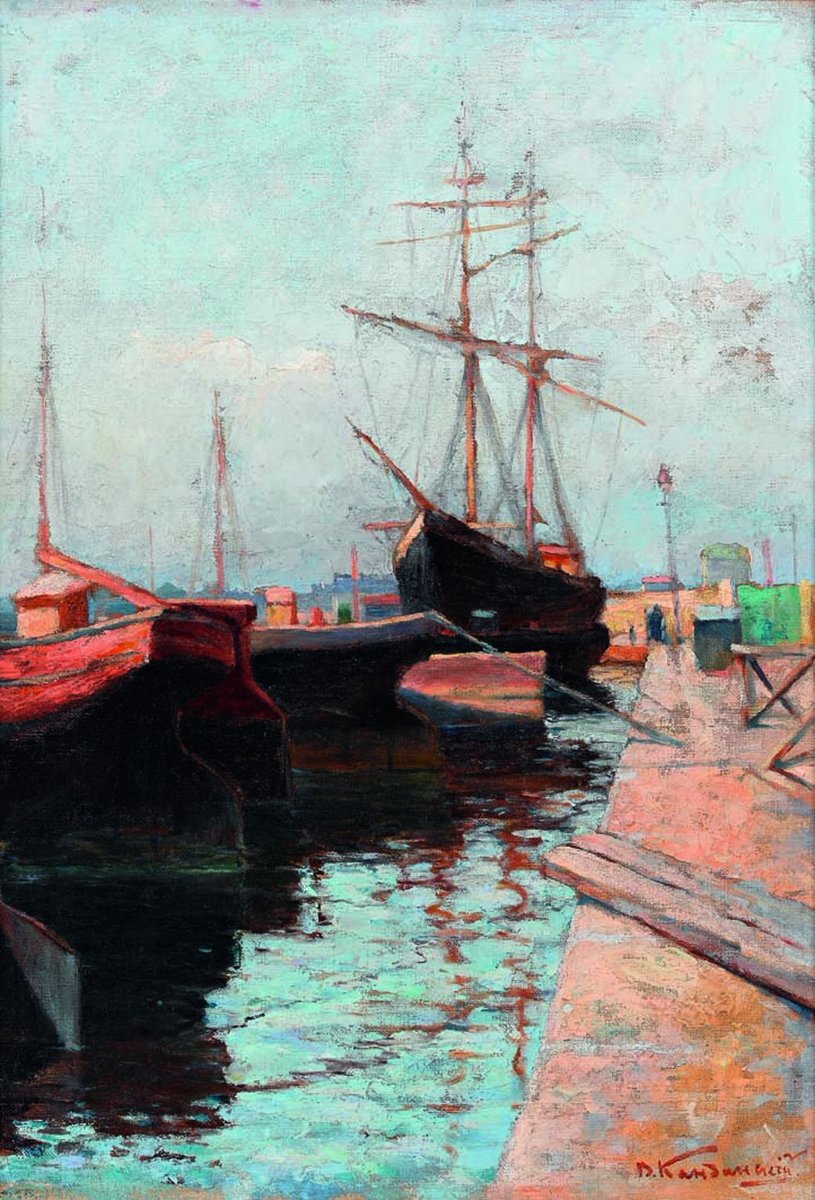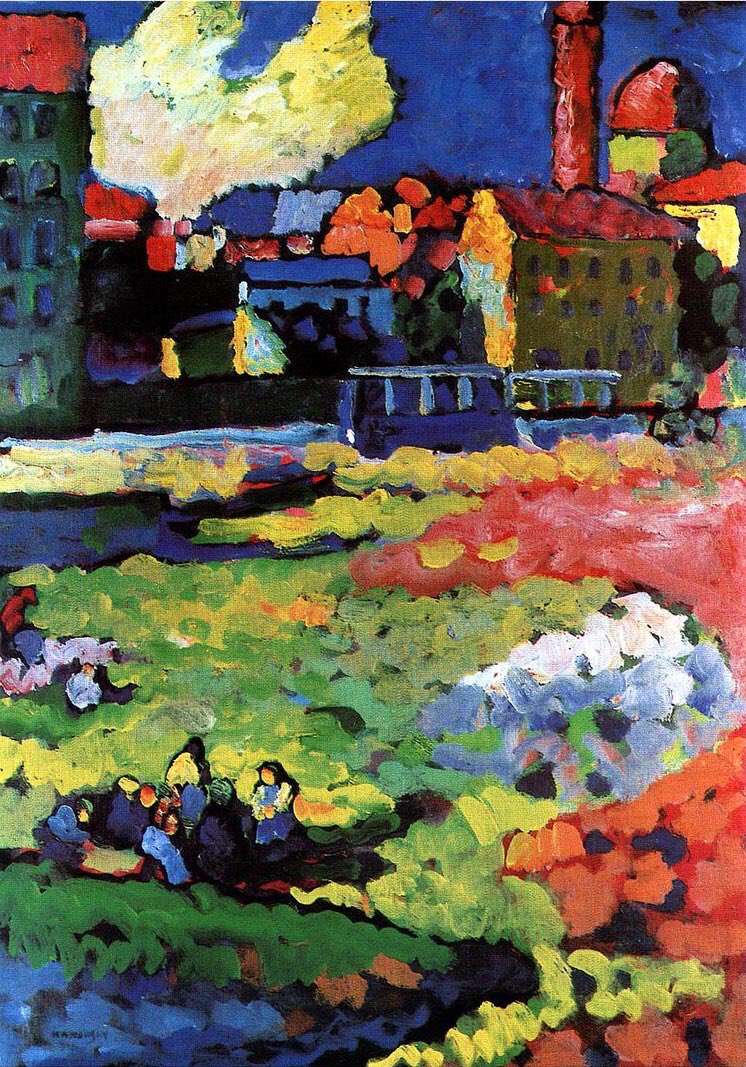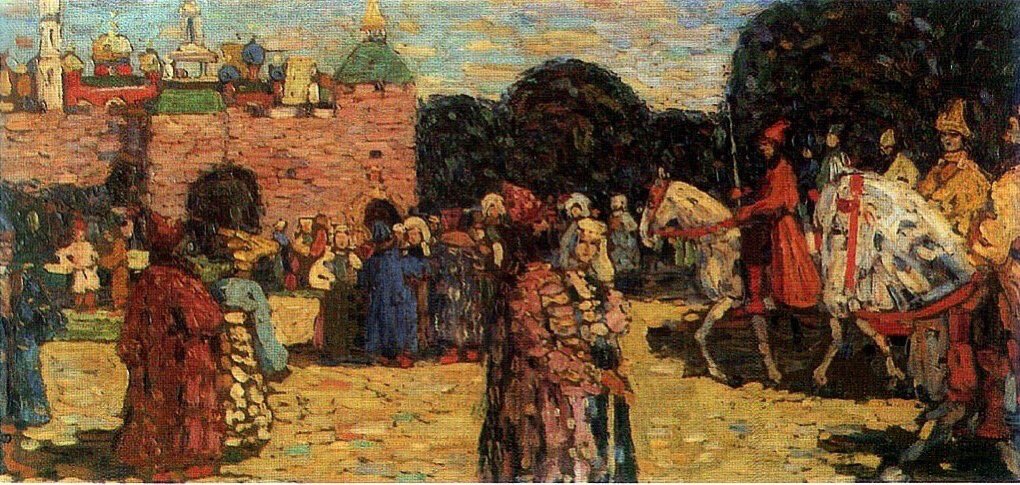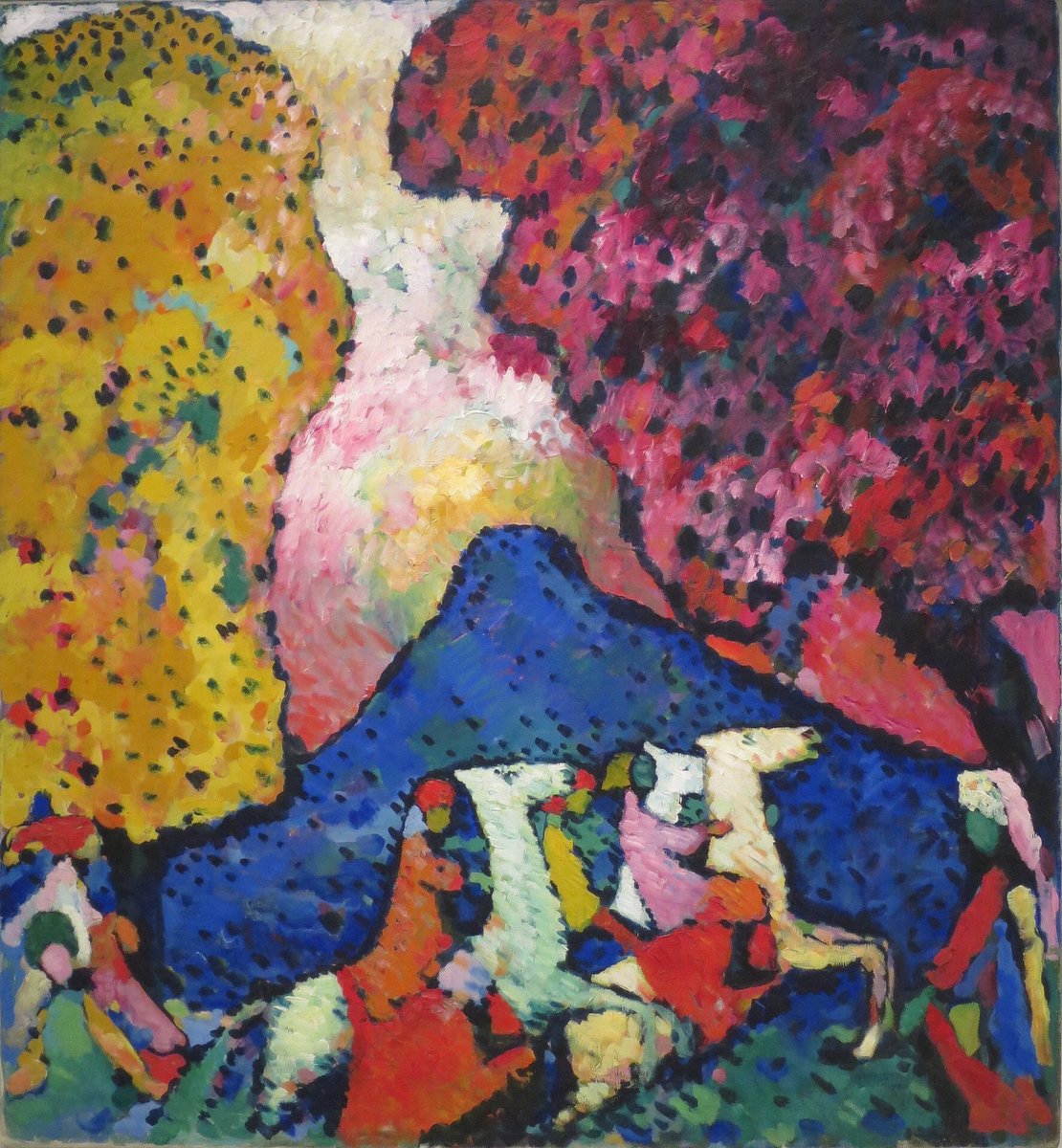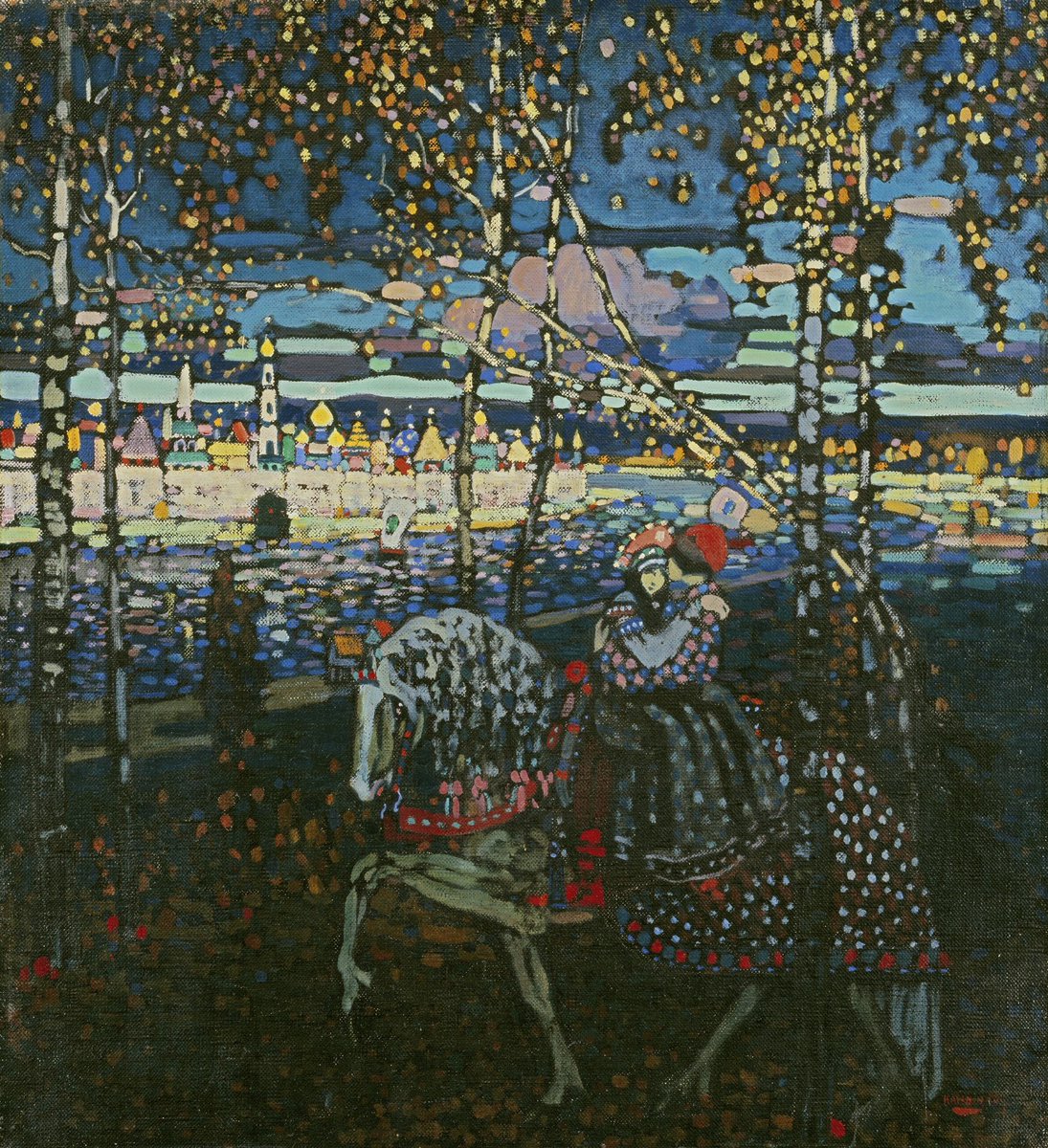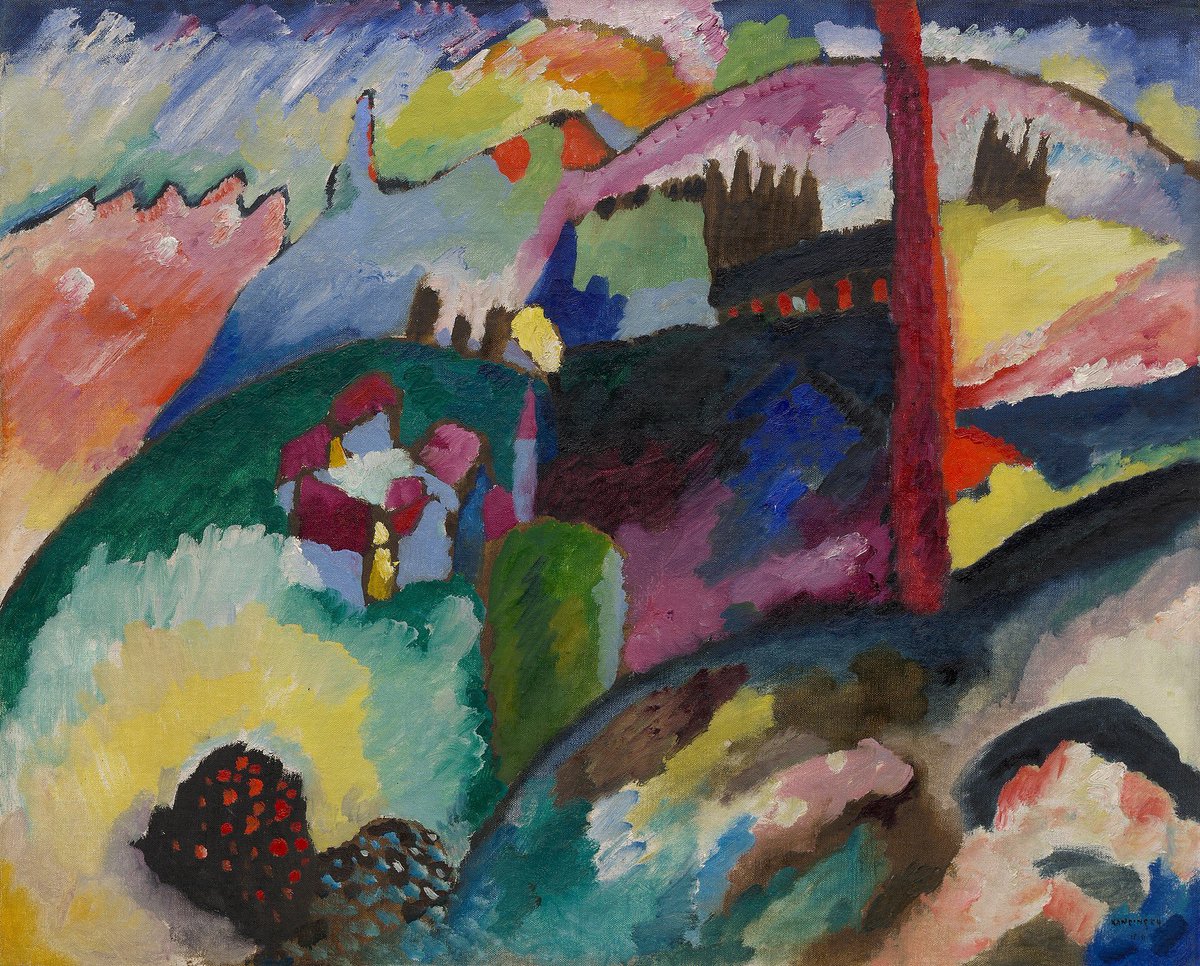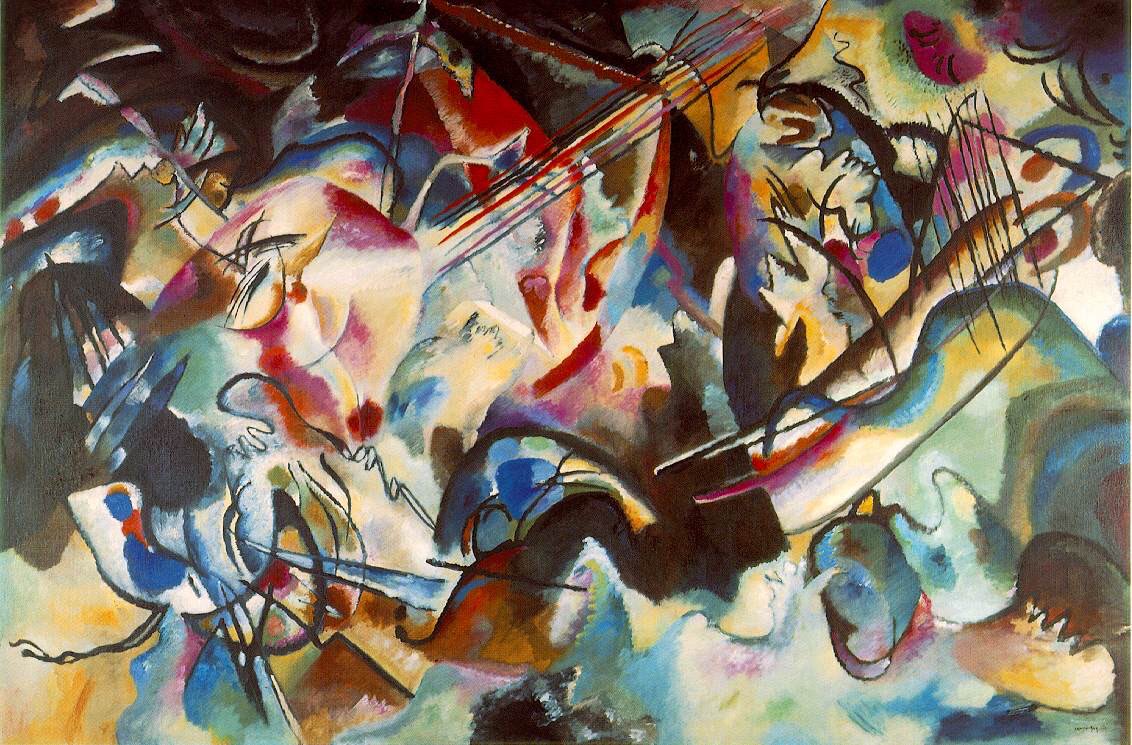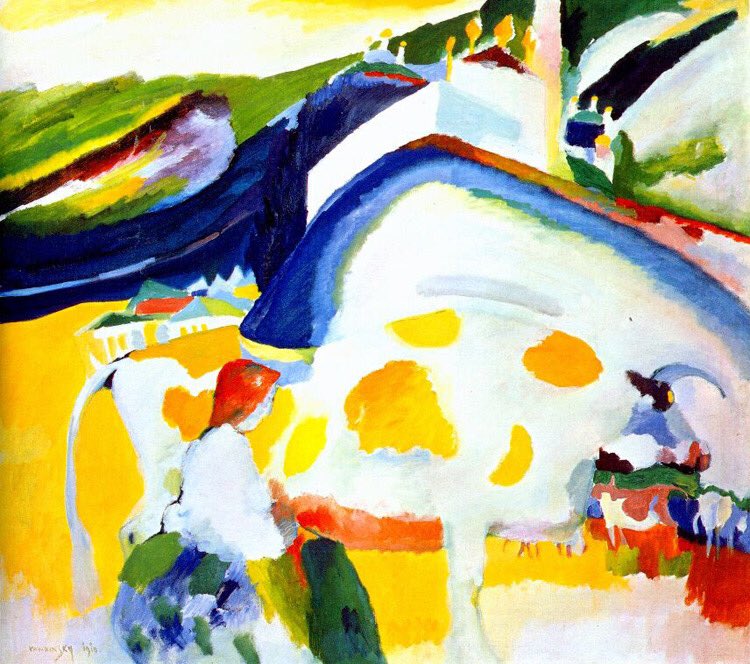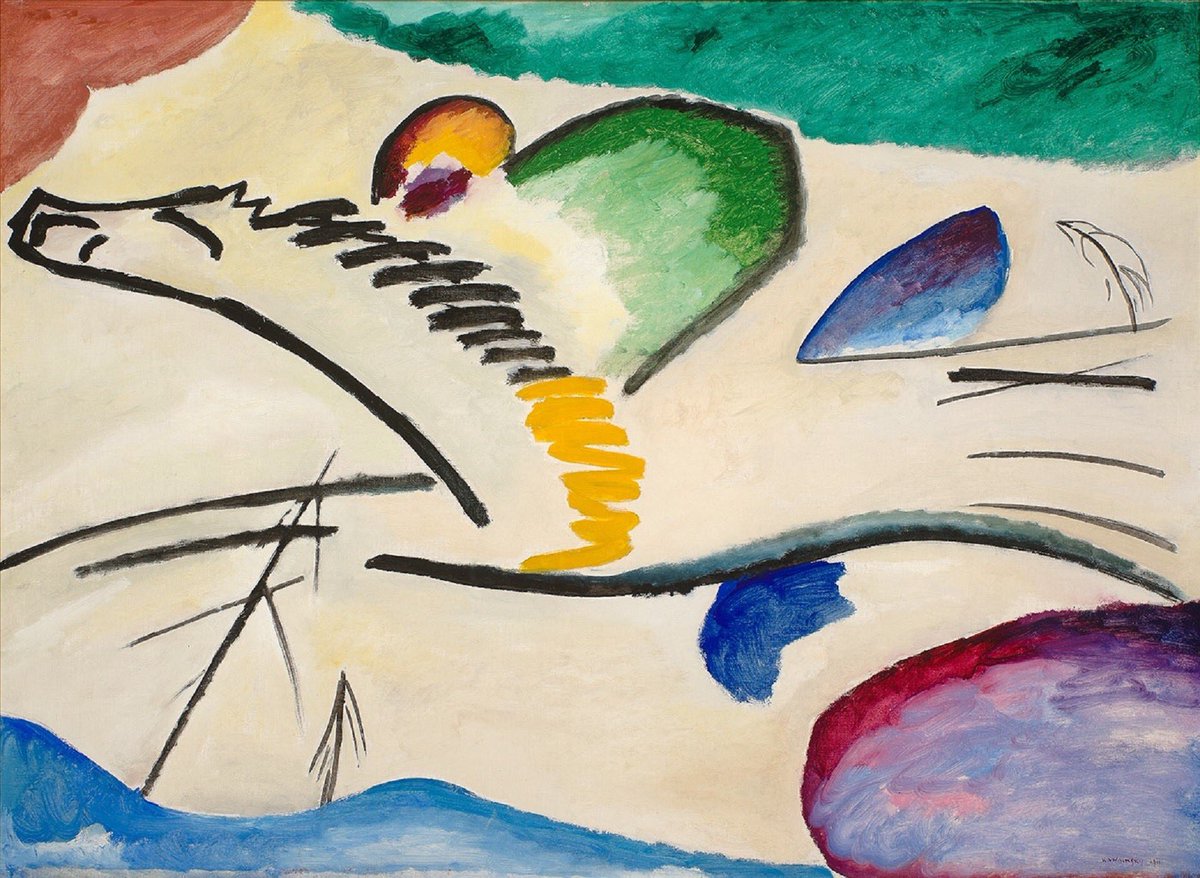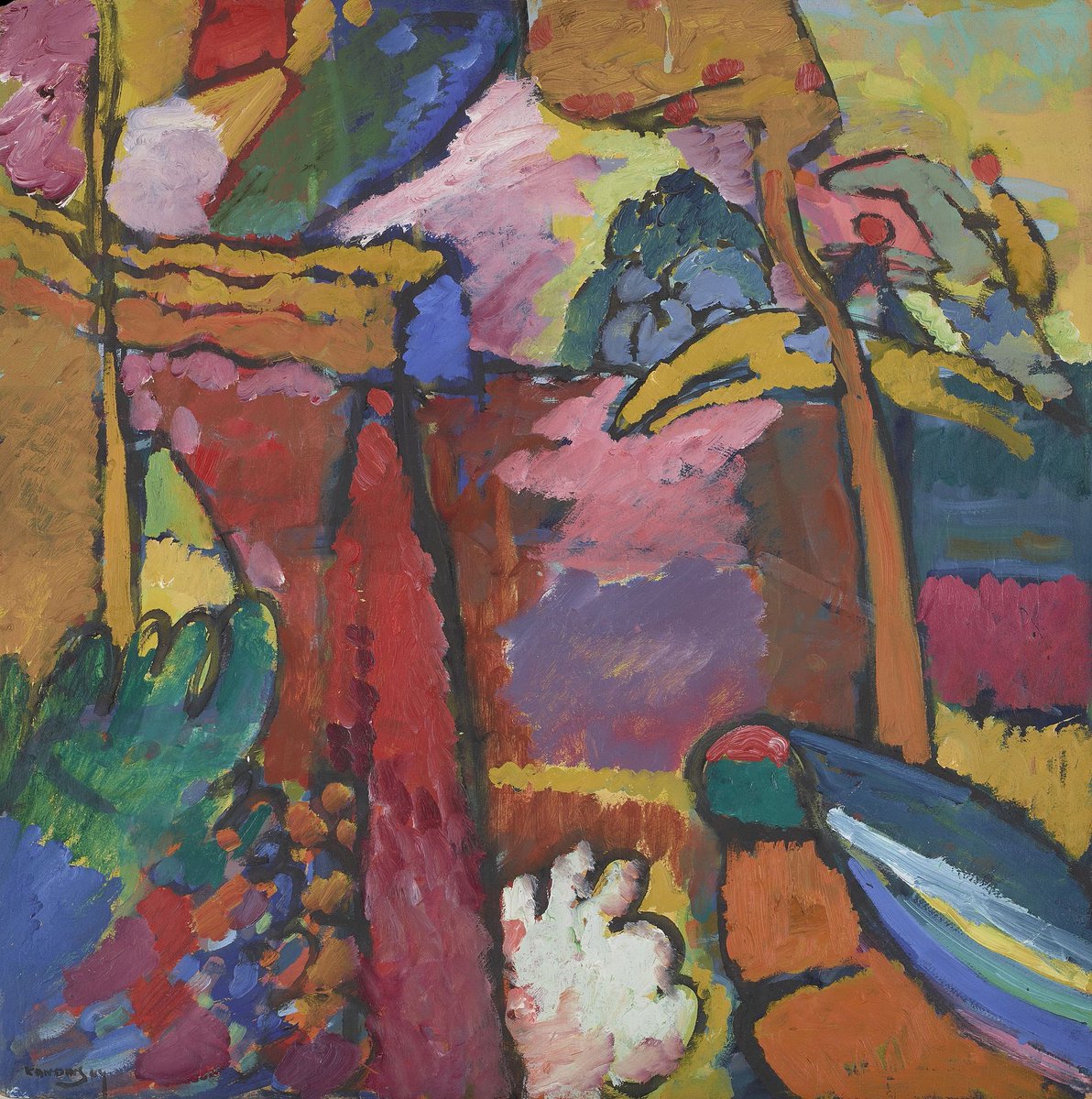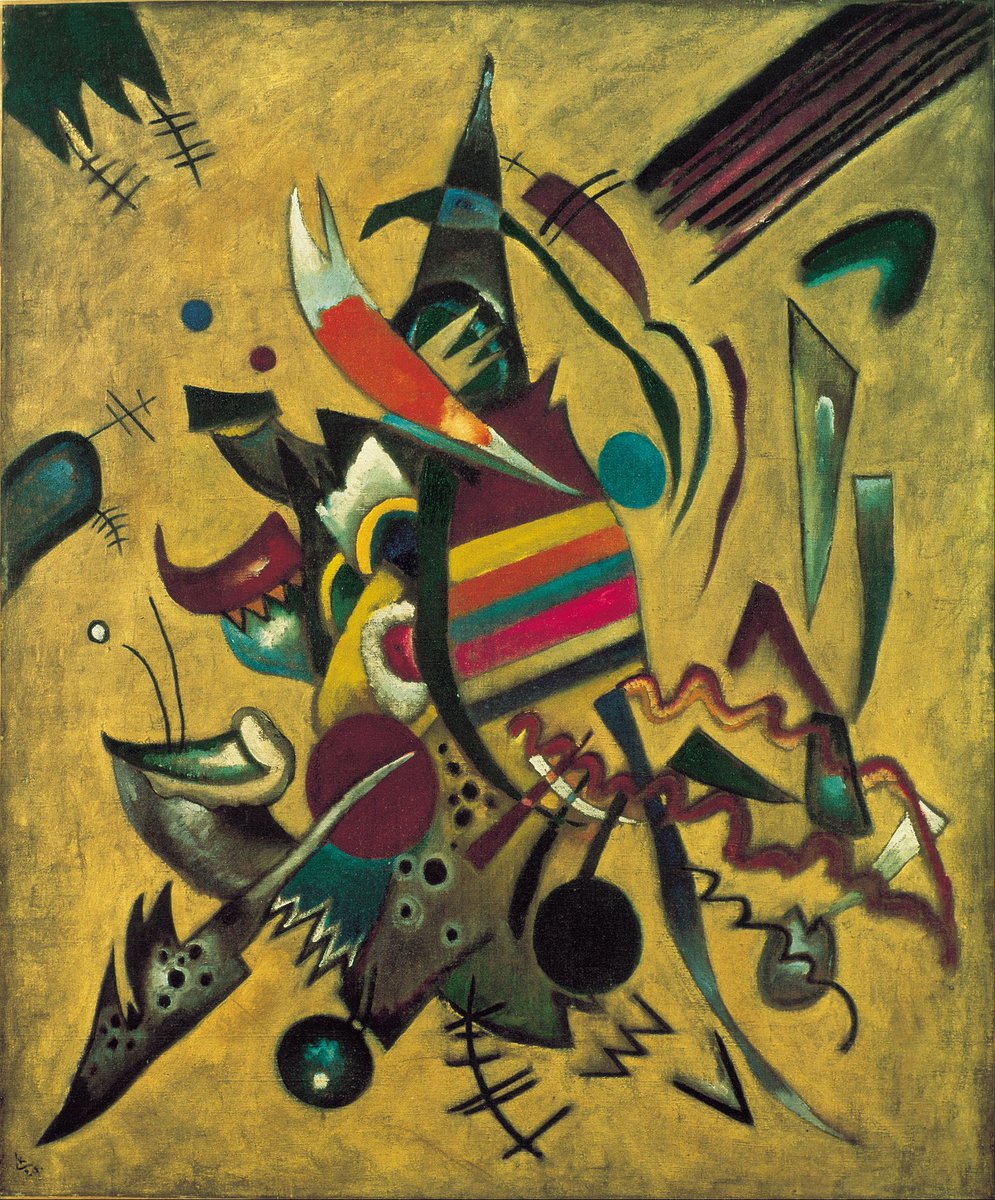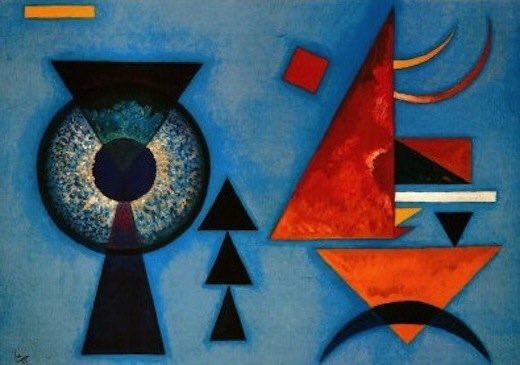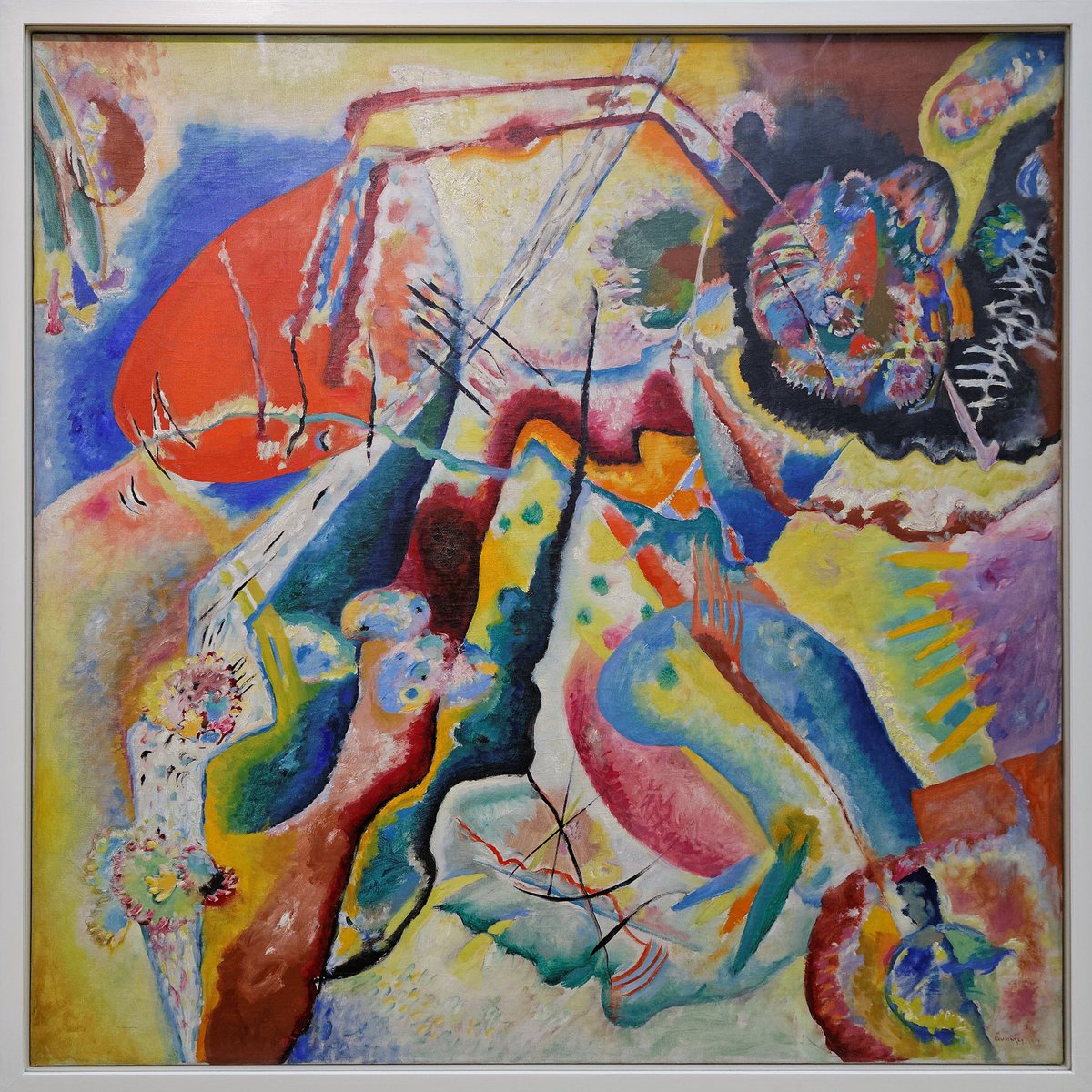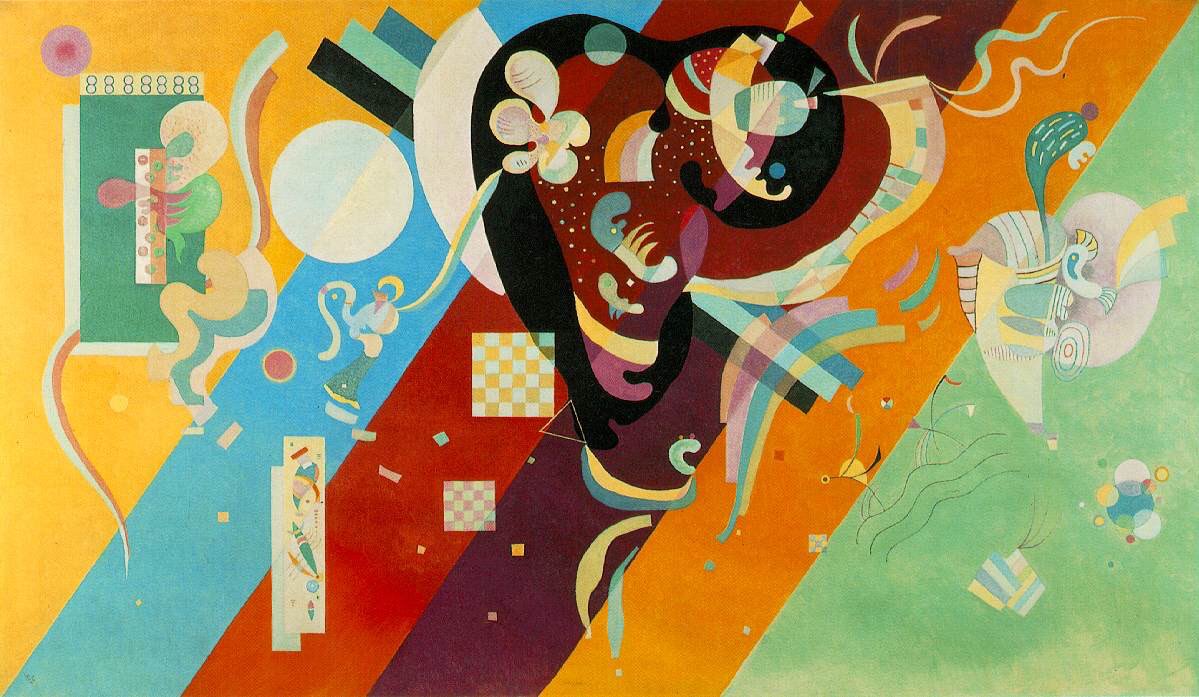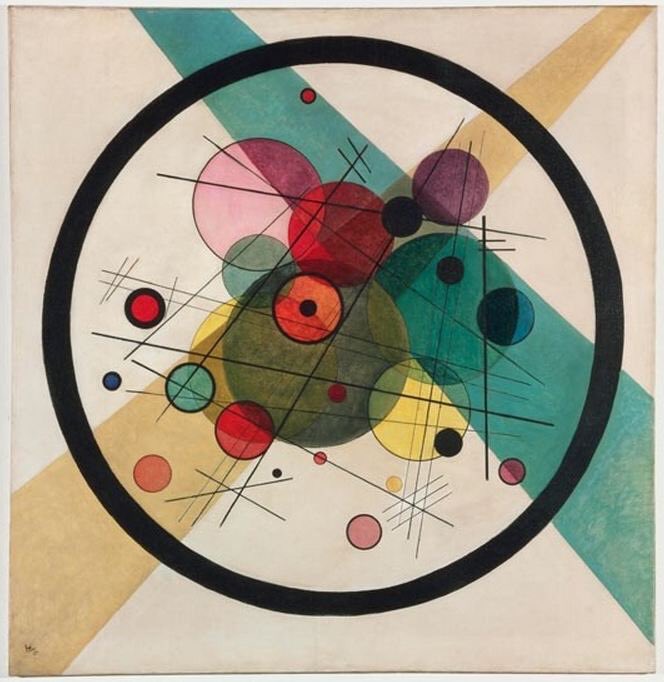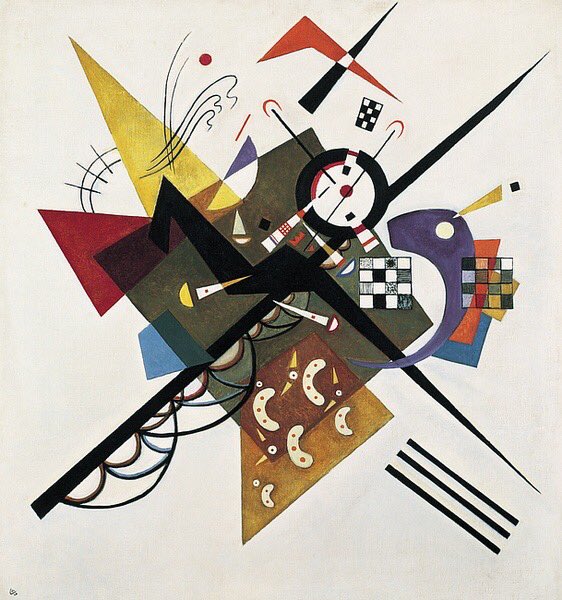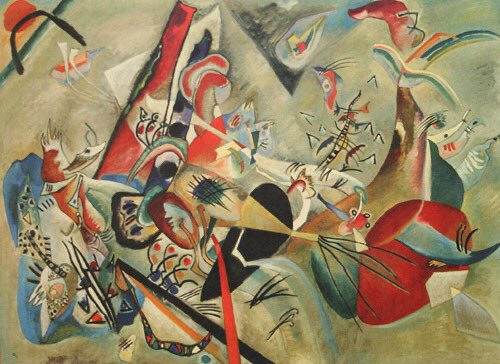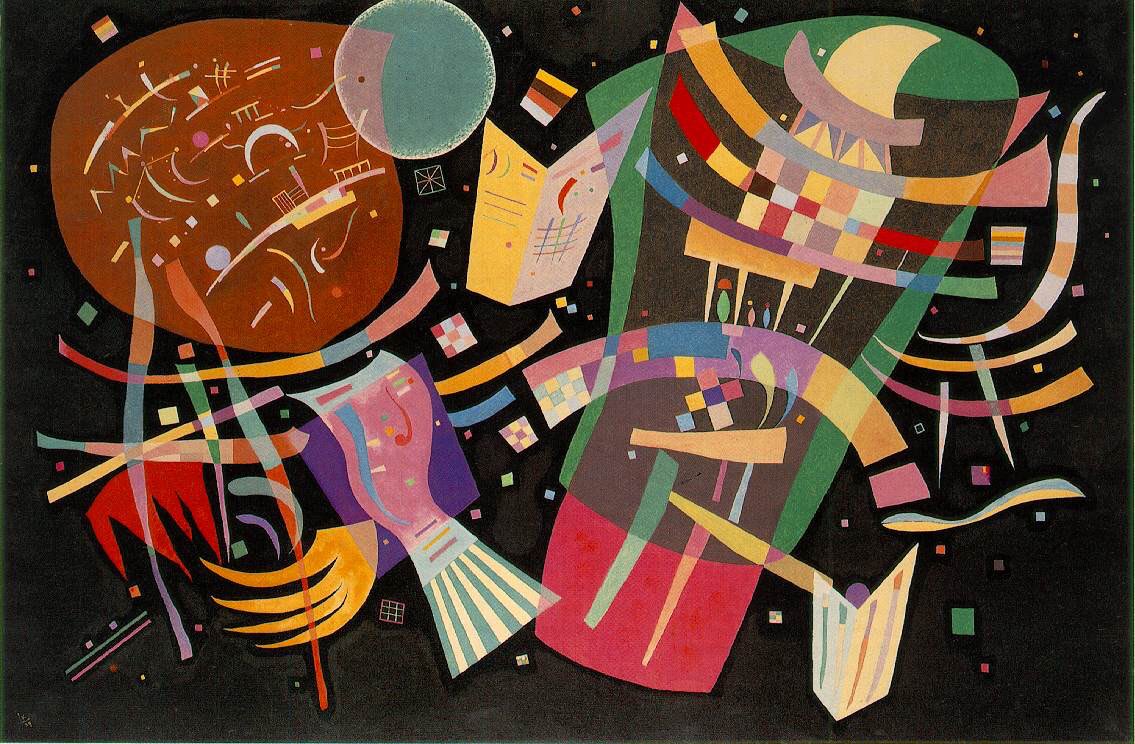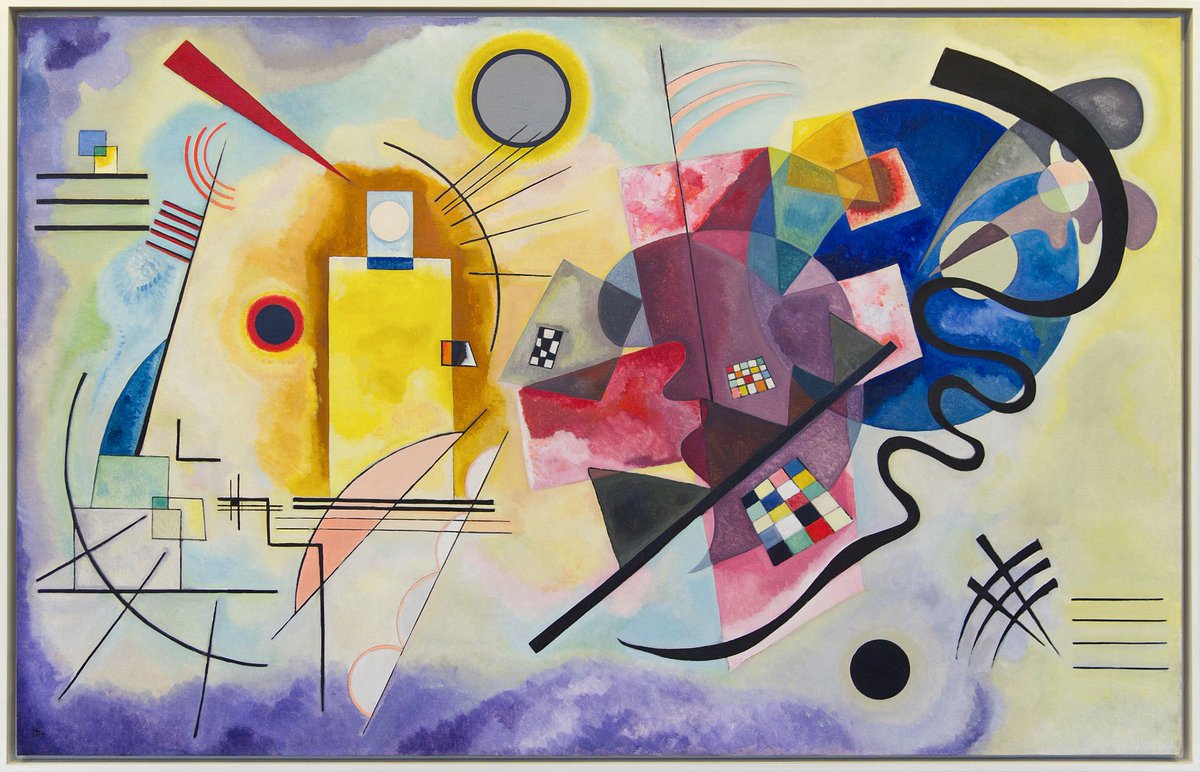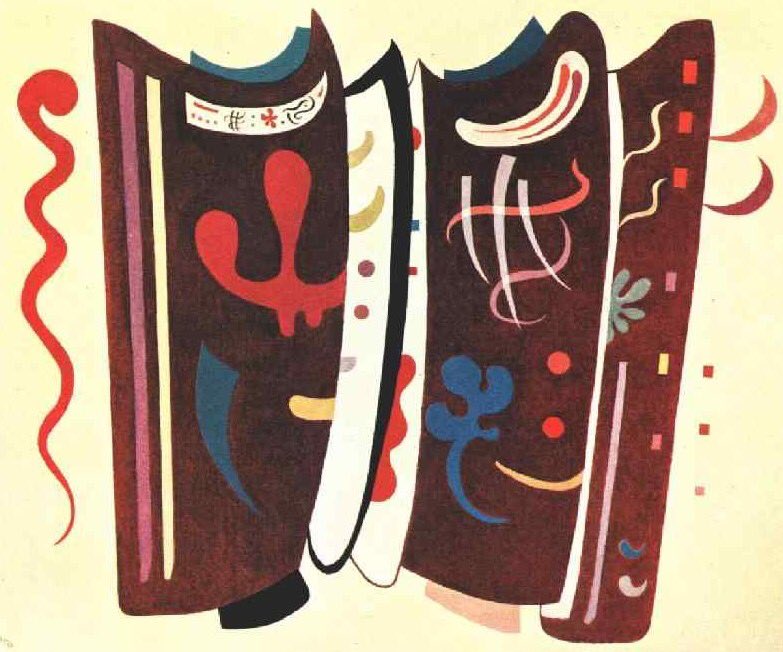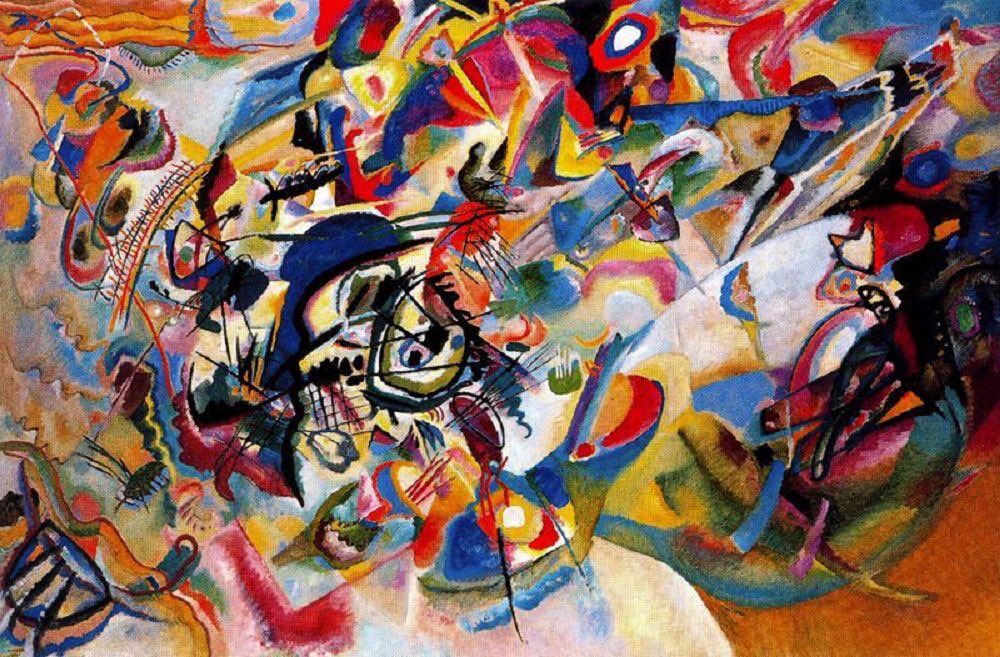"Color is the keyboard, the eyes are the harmonies, the soul is the piano with many strings. The artist is the hand that plays, touching one key or another, to cause vibrations in the soul."
~ Wassily Kandinsky #Botd 1866
#Botd 1866
~ Wassily Kandinsky
 #Botd 1866
#Botd 1866
"To create a work of art is to create the world."
~ Wassily Kandinsky
Munich-Schwabing with the Church of St. Ursula (1908)
~ Wassily Kandinsky
Munich-Schwabing with the Church of St. Ursula (1908)
"Color provokes a psychic vibration. Color hides a power still unknown but real, which acts on every part of the human body." ~ Wassily Kandinsky
The Blue Rider (1903)
The Blue Rider (1903)
"The observer must learn to look at the picture as a graphic representation of a mood and not as a representation of objects."
~ Wassily Kandinsky
~ Wassily Kandinsky
"In every painting a whole is mysteriously enclosed, a whole life of tortures, doubts, of hours of enthusiasm and inspiration."
~ Wassily Kandinsky
~ Wassily Kandinsky
"Everything that is dead quivers. Not only the things of poetry, stars, moon, wood, flowers, but even a white trouser button glittering out of a puddle in the street... Everything has a secret soul, which is silent more often than it speaks."
~ Wassily Kandinsky
~ Wassily Kandinsky
"The joy of life consists in the inevitable, continual triumph of new values."
~ Wassily Kandinsky
Landscape with Factory Chimney, oil on canvas, Solomon R. Guggenheim Museum
~ Wassily Kandinsky
Landscape with Factory Chimney, oil on canvas, Solomon R. Guggenheim Museum
"Of all the arts, abstract painting is the most difficult. It demands that you know how to draw well, that you have a heightened sensitivity for composition and for colors, and that you be a true poet. This last is essential."
~ Wassily Kandinsky
Saint George
~ Wassily Kandinsky
Saint George
"The true work of art is born from the 'artist': a mysterious, enigmatic, and mystical creation. It detaches itself from him, it acquires an autonomous life, becomes a personality, an independent subject, animated with a spiritual breath..."
"… lend your ears to music, open your eyes to painting, and … stop thinking! Just ask yourself whether the work has enabled you to “walk about” into a hitherto unknown world. If the answer is yes, what more do you want?"
~ Wassily Kandinsky
~ Wassily Kandinsky
"The circle is the synthesis of the greatest oppositions. It combines the concentric and the eccentric in a single form and in equilibrium. Of the three primary forms, it points most clearly to the fourth dimension."
~ Wassily Kandinsky
~ Wassily Kandinsky
"The deeper the blue becomes, the more strongly it calls man towards the infinite, awakening in him a desire for the pure and, finally, for the supernatural. The brighter it becomes, the more it loses its sound, until it turns into silent stillness and becomes white." ~ Kandinsky
"The force that propels the human spirit on the clear way forward and upward is the abstract spirit."
~ Wassily Kandinsky
~ Wassily Kandinsky
"That is beautiful which is produced by the inner need, which springs from the soul."
~ Wassily Kandinsky
~ Wassily Kandinsky
"The artist must have something to say, for mastery over form is not his goal but rather the adapting of form to its inner meaning."
~ Wassily Kandinsky
~ Wassily Kandinsky
"The spirit, like the body, can be strengthened and developed by frequent exercise. Just as the body, if neglected, grows weaker and finally impotent, so the spirit perishes if untended." ~ Wassily Kandinsky
"Almost without exception, blue refers to the domain of abstraction and immateriality."
~ Wassily Kandinsky
~ Wassily Kandinsky
Wassily Kandinsky (1866 – 1944) is generally credited as the pioneer of abstract art. Born in Moscow, Kandinsky spent his childhood in Odessa (today Ukraine), where he graduated at Grekov Odessa Art school. He enrolled at the University of Moscow, studying law and economics.
Kandinsky began painting studies (life-drawing, sketching and anatomy) at the age of 30. He settled in Munich, studying first at Anton Ažbe's private school and then at the Academy of Fine Arts. He returned to Moscow in 1914, after the outbreak of World War I.
However,by then "his spiritual outlook...was foreign to the argumentative materialism of Soviet society",and opportunities beckoned in Germany, to which he returned in 1920. There he taught at the Bauhaus school of art and architecture from 1922 until the Nazis closed it in 1933.
Kandinsky then moved to France, where he lived for the rest of his life, becoming a French citizen in 1939 and producing some of his most prominent art. He died in Neuilly-sur-Seine in 1944.

 Read on Twitter
Read on Twitter